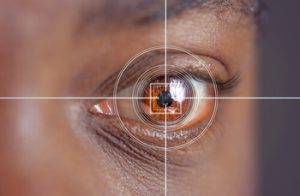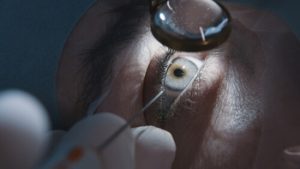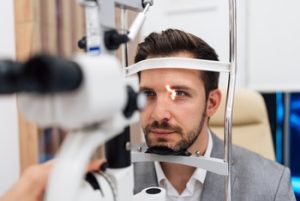Laser eye surgery is one of the most sought-after treatments for people who want to reduce or even eliminate their dependence on glasses or contact lenses. If you have ever wondered, “how long does laser eye surgery take,” you are not alone. Many patients are curious about what happens during the procedure, how much time it requires, and what to expect afterward.
This article will guide you through the timing of laser eye surgery, including LASIK surgery and other types of refractive surgery, while also explaining the preparation, healing process, and important aftercare considerations.
Understanding Laser Eye Surgery
Laser eye surgery, also called laser vision correction or laser refractive surgery, reshapes the cornea to correct refractive errors such as nearsightedness, farsightedness, and astigmatism. By adjusting the natural shape of the corneal tissue, light rays entering the eye are focused correctly onto the retina. The result is improved vision without relying on glasses or contact lenses.
There are several types of laser vision correction procedures, with LASIK eye surgery being the most common. Others include PRK (photorefractive keratectomy) and refractive lens exchange. All of these procedures are designed to provide clearer vision with reduced dependence on corrective eyewear.
How Long Does the Actual LASIK Procedure Take?
One of the most surprising facts for patients is just how quick LASIK surgery really is.
- Per eye timing: The laser treatment itself usually takes only about 20 to 60 seconds per eye.
- Entire LASIK procedure: From start to finish, the surgery typically takes about 10 to 20 minutes for both eyes combined.
- On surgery day: You will likely spend around 1 to 2 hours at the clinic, since preparation, numbing drops, and post-procedure observation take more time than the laser treatment itself.
Most patients are amazed to learn that something as life-changing as clear vision can be achieved in such a short period.
Step-by-Step Timeline of LASIK Surgery
Let’s break down the entire process to better understand how long each step takes.
1. Pre-surgery preparation (20 to 30 minutes)
Before the procedure, you will undergo an eye exam and corneal topography to measure the shape of your cornea. You will also receive numbing drops to prevent pain during the procedure. In some cases, a suction ring is applied to stabilize the eye.
2. Creating the corneal flap (1 to 2 minutes)
During LASIK surgery, the surgeon uses a femtosecond laser to create a thin flap in the cornea. This step usually takes less than 2 minutes per eye.
3. Reshaping the cornea (20 to 60 seconds per eye)
A different laser, called the excimer laser, removes small amounts of corneal tissue to correct vision problems. You may notice a faint odor, sometimes described as similar to burning hair. This is normal.
4. Repositioning the flap (1 to 2 minutes)
After reshaping, the corneal flap is carefully repositioned. No stitches are required, as the natural healing process holds it in place.
5. Immediate recovery and observation (30 to 60 minutes)
After the procedure, most patients rest in the clinic for about 30 to 60 minutes. The staff will ensure your vision is stable enough for you to return home.
What About the Entire Process, Including Before and After?
When people ask how long laser eye surgery takes, they are often thinking only about the laser treatment itself. While the actual reshaping of the cornea happens in under a minute per eye, the entire process on surgery day is more involved and takes longer from start to finish.
From the moment you arrive at the clinic to the time you leave, expect to spend about 2 to 3 hours. This extra time is important because your refractive surgeon and care team follow a step-by-step approach to make sure everything runs smoothly and safely.
Here is what usually happens:
- Check-in and paperwork: You will review your medical history, confirm your stable prescription, and answer any last-minute questions about your overall health.
- Eye exam and measurements: Additional scans such as corneal topography may be done to map the natural shape of your cornea. This ensures that the laser vision correction procedure is tailored to your eyes.
- Preparation and numbing drops: Your eye doctor applies numbing drops to prevent discomfort. You may also receive medicated eye drops to reduce the risk of infection and keep your eyes moist.
- Discussion of aftercare: Before the actual laser eye surgery, the team will explain how to use your prescribed eye drops, what activities to avoid (like hot tubs, swimming, or strenuous contact sports), and how to recognize signs of more serious complications such as severe pain or vision changes.
- Surgery itself: The LASIK procedure, which includes creating the corneal flap, reshaping the corneal tissue, and repositioning the flap, usually takes about 10 to 20 minutes in total.
- Immediate recovery: After the surgery, you rest in the clinic for 30 to 60 minutes. During this time, the staff will check your vision, apply protective shields, and review instructions again to ensure you are ready to go home.
By the time you leave, you will have already started the healing process. Some patients notice improved vision right away, while others may still experience blurry vision, watery eyes, or light sensitivity for the first few hours. Your surgeon will schedule follow-up appointments to monitor progress and confirm that your eyes are adjusting well.
So even though the laser treatment itself is very brief, the entire process is carefully designed to give you the best chance of achieving clear vision while minimizing risks.
Recovery Timeline: How Long Until You See Clearly?
Many patients experience noticeable improvements in their vision almost immediately after the procedure. However, the healing process varies.
- First few hours: Expect watery eyes, mild pain, and blurry vision. You may also feel like something is in your eye.
- Same day: Most patients rest at home with medicated eye drops and protective shields to prevent infection.
- Few days: Vision becomes clearer, although you might experience light sensitivity and mild discomfort.
- Few weeks: Vision stabilizes, and most patients achieve clear vision within 2 to 4 weeks.
- Follow-up appointments: These are scheduled regularly to track healing and ensure no eye disease or complications arise.
Factors That May Influence the Length of Surgery
Not every case is the same. Some factors can slightly change how long laser eye surgery takes:
- Stable prescription: Patients with long-term stable prescriptions are often faster candidates for the procedure.
- Overall health: Conditions such as diabetes or autoimmune disease may require additional evaluation.
- Type of refractive surgery: LASIK is quicker than PRK, which requires surface healing. Refractive lens exchange takes longer since it is more similar to cataract surgery.
- Enhancement surgery: Occasionally, patients need a touch-up procedure, which is often shorter than the first surgery.
How Long Before You Can Resume Daily Activities?
After surgery, it is important to follow your surgeon’s advice carefully to avoid complications. Here is a general idea of recovery timing:
- Driving: Many patients are cleared to drive within 24 to 48 hours, depending on their vision clarity.
- Work: Office jobs can usually be resumed in a few days, but jobs with more eye strain may require more rest.
- Eye makeup: Avoid wearing eye makeup for at least a week to prevent infection.
- Hot tubs and swimming: Avoid swimming pools and hot tubs for about 2 to 3 weeks.
- Strenuous contact sports: It may take several weeks before you can return to high-impact sports, as these can disturb the healing corneal flap.
- Non-contact sports: Activities like jogging or yoga can usually be resumed within a few days.
 Does Laser Eye Surgery Hurt or Take Longer If Complications Arise?
Does Laser Eye Surgery Hurt or Take Longer If Complications Arise?
The procedure itself is not painful thanks to numbing drops. Some patients report mild pain or burning sensations afterward, but severe pain is uncommon.
While most patients recover quickly, more serious complications such as corneal ectasia, infection, or vision changes are rare. If they do occur, they may extend the healing timeline. Following your doctor’s recommendations helps minimize risks.
Comparing LASIK Surgery with Other Vision Correction Options
When exploring vision correction, it helps to see how LASIK stacks up against other common choices. Each option has different benefits and considerations.
- Glasses or Contact Lenses
- Provide immediate vision correction without surgery
- Require ongoing maintenance and replacement
- Contact lenses need careful cleaning to prevent eye infection
- Can be inconvenient for activities like swimming or non contact sports
- Refractive Lens Exchange (RLE)
- Similar to cataract surgery, replacing the natural lens with an artificial one
- Often recommended for people with high prescriptions or presbyopia
- Takes longer than LASIK with a slower recovery period
- Can reduce or eliminate the need for reading glasses later in life
- Photorefractive Keratectomy (PRK)
- Early form of laser vision correction that reshapes the cornea without creating a flap
- Suitable for patients with thinner corneas or those active in strenuous contact sports
- No risk of flap-related issues since the surface is treated directly
- Recovery is slower, with vision taking several weeks to stabilize
- LASIK Surgery
- Quick procedure, usually under 20 minutes for both eyes
- Patients often notice improved vision within hours
- Short healing process, with many people returning to work in a couple of days
- Remains one of the most popular options due to its balance of speed, effectiveness, and minimal downtime
What to Expect in the First Few Weeks
In the weeks following laser surgery, patients may notice:
- Blurry vision or halos around bright lights
- Watery eyes and light sensitivity
- Fluctuating vision, especially during the first few days
- Mild discomfort that improves with medicated eye drops
These effects usually fade as the eyes adjust and the cornea heals. Most patients are able to return to normal routines within a couple of weeks.
The Role of Follow-Up Appointments
Follow-up appointments are essential for monitoring your healing process. Your refractive surgeon will check for signs of infection, dry eyes, or complications. Appointments are usually scheduled:
- The day after surgery
- Within the first week
- At one month
- At three months, or as recommended
These visits ensure your eyes are healing properly and that your vision is stable.
Long-Term Outlook After Laser Eye Surgery
Most patients enjoy clear vision for many years after laser eye surgery. However, natural aging processes can still cause vision problems later in life, such as the need for reading glasses or the development of cataracts.
While the surgery cannot stop these age-related changes, it significantly reduces dependence on glasses or contact lenses for many years.
Final Thoughts

The short duration is one of the biggest advantages of LASIK and similar procedures. With careful preparation, proper aftercare, and follow-up appointments, most patients enjoy improved vision and reduced dependence on glasses or contact lenses within weeks.
Laser eye surgery may be quick, but the positive impact on your quality of life can last for years.
References:
https://www.fda.gov/medical-devices/lasik/what-should-i-expect-during-and-after-surgery
https://www.nhs.uk/tests-and-treatments/laser-eye-surgery-and-lens-surgery/
https://my.clevelandclinic.org/health/treatments/21805-lasik-eye-surgery
https://www.moorfields.nhs.uk/private/eye-conditions-and-treatments/laser-eye-surgery/lasik-vs-lasek
https://www.healthline.com/health/eye-health/how-long-does-lasik-last



 Does Laser Eye Surgery Hurt or Take Longer If Complications Arise?
Does Laser Eye Surgery Hurt or Take Longer If Complications Arise?